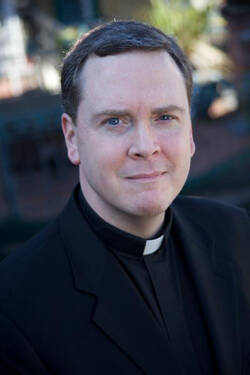Some say it all started with Bill Clinton’s feel-your-pain politics, others with Oprah’s daily pseudo-psychology. Still others say it began with MTV’s “The Real World,” the first in that ingeniously banal and now omnipresent genre called reality television.
Whenever it started, there can be no doubt that the previously impregnable wall between our public and private selves is now little more than an archeological site for sociologists. The public confession, in all its indecorous glory, is now a permanent fixture in the popular culture.
Don’t get me wrong; the news isn’t entirely bad. Behind the distasteful and dangerous there is also a deep desire for a true good, authenticity, even intimacy.
Public confessions aren’t anything new either. Before the invention of the “confessional box” in the Middle Ages, Christians admitted their sinfulness before their congregations. In this way, the public nature of sin was revealed and sinners were thereby reconciled, not only with their Lord but, as the catechism says, “with the church they had wounded by their sins.”
In other words, as much as we might admire Pope Francis for publicly declaring last week, “I am a sinner,” St. Augustine said it 1,600 years ago; and not a few said it before Augustine. The saints are renowned for their spiritual autobiographies, great works of passion and despair, beauty and devastation; they are among the most dramatic accounts of human living ever recorded.
The difference, of course, is that in the church a public confession is an act of repentance and reconciliation, a proclamation of one’s faith; in the world of reality television, a public confession is more often a narcissistic celebration of one’s sins. Nonetheless, the church continues to uphold and celebrate the nobler, truer form of the art. We were pleased to publish Pope’s Francis’ public confession last week. The pope spoke there in moving and intimate terms of his own spiritual journey: “The best summary, the one that comes more from the inside and I feel most true is this: I am a sinner whom the Lord has looked upon.” And he repeats: “I am one who is looked upon by the Lord.”
We are also very proud to have James Martin, S.J., here at America. Father Martin is widely and rightly acclaimed as a master of the confessional style; his spiritual autobiography has been a source of consolation for thousands of people.
It is particularly appropriate then that this issue of America takes another look at the art of public confession, what we now are more likely to call spiritual (auto)biography. Kaya Oakes tells us that the response to the bulletin announcement about her parish class on spiritual biography was overwhelming. That basic human desire for authenticity, for intimacy, is still very much at work: “When we write about the faith that keeps us going, it may not always be spectacular,” Ms. Oakes writes. “And yet every Mass, every confession, every Easter and even every moment of doubt and crisis has meaning. Each story we bring to the page has the potential to connect with a reader who has lived those same moments.” Elsewhere in this issue, Thomas P. Sweetser, S.J., talks about the practical ways in which our personal narratives form a vital part of the new evangelization, especially in our parishes, while Austin Rose talks about the emotional connection with others that can come through music.
We rightly recoil from the self-indulgence and solipsism we see nightly on cable TV. But we must not forget that public confession, in a spirit of humility and grace, is a noble and still-needed tradition. After all, God’s revelation is itself a story, indeed the greatest story ever told: the tale of the creator’s eternal and infinite love affair with his creation.








